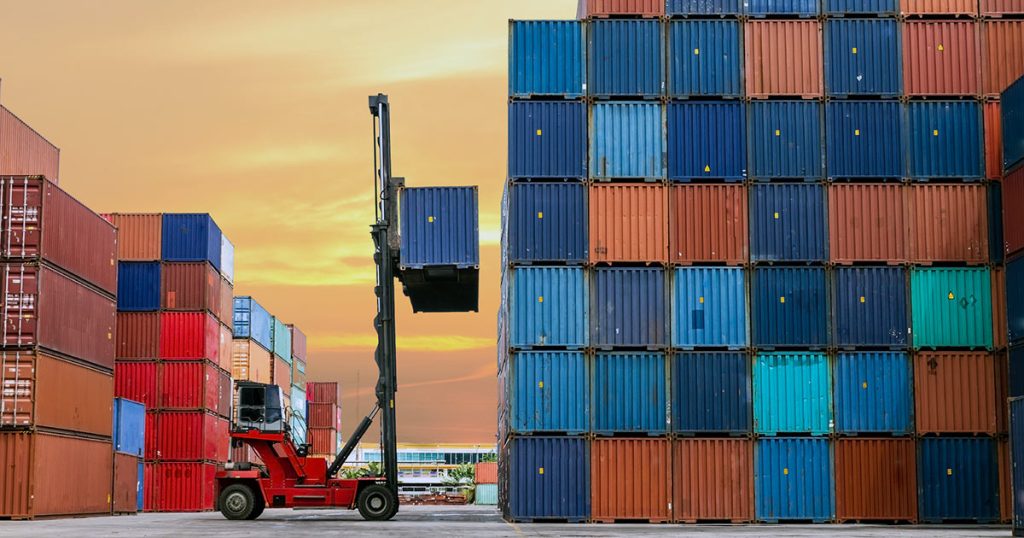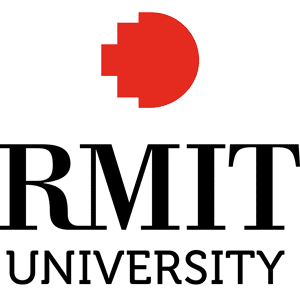Succeed as a supply chain manager (or similar role) with an online university program.

Overview
Demand is high for professionals able to coordinate smooth, efficient business operations. The right university course can establish or advance your career in logistics or supply chain management. Study options include a bachelor degree, or a masters or shorter postgraduate qualification.
A logistics and supply chain management course prepares students for roles managing goods flow, coordinating procurement, and optimising supply chains. Topics covered include customer relations, global networks, inventory control, operations management, and procurement.
Graduates have a range of job options, including logistics coordinator, logistics manager, supply chain manager, warehouse manager, transport manager, and distribution manager. These roles are attainable with a 3-year business degree or, for graduates and professionals, a graduate certificate or master's degree in supply chain and logistics management.
High Demand for Logistics Managers
Demand is high and growing for logistics and supply chain managers. These professionals ensure logistically efficient movements of goods. They are also responsible for coordinating supply chains, from procurement to distribution.
According to Jobs and Skills Australia, employment in supply, distribution, and procurement management is projected to expand by 9.4% over five years, increasing from 50,100 in May 2023 to 54,800 by May 2028. Over the next ten years, 16.6% growth is forecast, with employment reaching 58,400 by May 2033.
To understand why demand is strong, consider that almost every business fits within a complex supply chain. Even within a business, you often have sophisticated interactions between different parts of the operation. Analysts and managers are needed to coordinate internal and external business processes to achieve maximum efficiency.
By studying logistics and supply chain management, you build skills to potentially improve any business's performance. Graduates are in demand for managing complex flows of goods, information, services, and finances. They play a key role in meeting globalisation and e-commerce challenges and reducing storage and transport costs.
Related: What Is a Logistics Manager? Job Description
Online University Courses from Australia
In Australia, managers who work on value chains are generally expected to have university qualifications. Relevant credentials provide graduates with access to entry-level roles and help drive sustained career growth. Here are the best education options, depending on your background and experience, for launching a career in this field.
Bachelor of Business
In job ads for logistical manager roles, a common requirement is tertiary qualifications in business, supply chain and logistics, or engineering. Therefore, a Bachelor of Business (Logistics and Supply Chain Management) or similar, could be considered ideal career preparation.
A limited number of online universities offer Logistics and Supply Chain Management as a major for undergraduate business students. To achieve the major, you need to complete typically 8 prescribed units towards the end of the degree (2nd and 3rd years).
Alternatively, you can construct a suitable program yourself. Australia's best online BBus degrees offer many electives. You can favour subjects in areas such as analytics, international business, quantitative methods, and microeconomic decision making.
Related: Is a Business Degree Worth It?
Graduate Certificate
If you already have a uni degree of some kind and want to learn about business operations management, a Graduate Certificate in Supply Chain and Logistics Management (or similar) is a good option. The course is also suitable for experienced professionals without a degree.
Students essentially complete four subjects from a master's program, with the option to continue studying for a master's degree. Doing this course gives you foundational skills and a university qualification in the field. A graduate diploma may also be available by completing 8 subjects.
RMIT Online - Graduate Certificate in Supply Chain and Logistics Management
The RMIT Online Graduate Certificate in Supply Chain and Logistics Management is an 8-month, part-time course that includes four core subjects: Supply Chain Principles, Business Analytics, Supply Chain Modelling and Design, and Business Project Management. This graduate certificate provides essential skills for roles in supply and procurement, freight transport, distribution, warehousing, and more. It's also a pathway to a masters degree. The program is open to graduates from any background as well as to experienced professionals.
Related: Is a Graduate Certificate in Business Worth It?
Specialist Masters Degree
A Master in Logistics and Supply Chain Management could help you stand out in a competitive job market. Graduates have better access to advanced or higher paying positions in the field. Earn your degree without needing a career break. These programs are designed for online learning by working professionals.
RMIT Online - Master of Supply Chain and Logistics Management
RMIT University offers a 100% online, fully accredited Master of Supply Chain and Logistics Management. The program is designed for part-time, year-round study and suits full-time workers. Students do one subject at a time, with each taking 7 weeks. You can complete the program in 2 years without ever having to sit a long exam. Assessment relies on research reports, case study analysis, and pop-up quizzes. If you lack a business degree, you can start with the graduate certificate component. Subjects include business analytics, distribution and freight logistics, e-Business, managing supply contracts, and strategic operations.
Related: Is a Masters in Supply Chain Management Worth It?
What You'll Study (Program Structure)
In a degree program, you'll study diverse topics about managing the flow of goods, services, and information within and between organisations. Some examples are strategy and design, logistics and transportation management, procurement and sourcing, inventory management, international trade and logistics, and data analysis and decision making.
In addition to technical skills, students develop leadership, communication, and problem-solving skills, which are essential for success in the field. Here are example subject descriptions from the RMIT master's program.
This course covers business analytics concepts, tools, and their application in decision-making. It includes statistical analysis, modelling, and fact-based management techniques. Relevant to all business areas, it builds core skills for future analytics use.
This subject explores project management practice and the project manager's role. It suits industries relying on projects for new products, processes, and change.
It delves into cross-industry methods, techniques, and tools. Students apply these in team-based project proposals and assess industry practices against project management standards, underpinned by research.
This course equips students with problem-solving skills for complex business issues, guiding them to devise and pitch solutions within a business model framework.
Learners will pinpoint and research key assumptions in their business models, converting these into research questions and selecting suitable research approaches.
It incorporates a Work Integrated Learning (WIL) component, allowing students to apply skills in a work setting and gain industry feedback.
This subject delves into transport and freight distribution within supply chains and logistics. It examines the interconnectedness of freight distribution and the impact of transport on operational and logistical performance. Key focuses include retailing, distribution and marketing channels, city logistics, and transportation management. It addresses distribution planning, delivery postponement, marketing channel choices, and transport mode selection, exploring their effects on goods transportation and distribution.
This unit highlights the importance of e-supply chains in business logistics, presenting concepts and techniques for their design and implementation. It discusses relevant technologies and uses case studies to illustrate various e-supply chain strategies.
This subject explores the evolution of global logistics in the 21st century, including transport modes, nodes, hubs, and corridors. It covers the current context of global trade, outsourcing, trade patterns, and advances in logistical software and skills. The course also looks at international trade regulations and their impact on logistical systems, highlighting the challenges and opportunities.
Students gain skills and knowledge for effective work in global business, focusing on negotiation, establishment, and management of contracts in global supply chains.
The subject addresses the complexities in supply contract management, influenced by globalisation and production outsourcing. Included are literature reviews, case studies, lectures, industry guest talks, workshops, and seminars. Students will gain insights into contract creation and management frameworks, along with skills to identify and mitigate contractual risks.
Supply chain performance is crucial for stakeholders and can set a company apart from competitors. This subject focuses on strategy development to maximise value in value chains, building on introductory studies. It examines operations, integration and collaboration, and virtual supply chains through local and international case studies. This capstone unit enables students to integrate and reflect on their learning from the program, solidifying their understanding and skills.
This subject delves into strategic procurement management, covering concepts, theories, skills, and processes. It includes supplier selection, relationship management, negotiations on pricing and terms, and supplier performance management. The subject also provides a capstone experience for students to integrate, critically reflect on, and consolidate their learning from the program.
This unit focuses on key theories and practices in logistics system design and management, preparing students for roles in manufacturing, warehousing, transportation, and distribution. It explores distribution, warehousing, transportation, logistics integration, performance indicators, and the application of analytical techniques and mathematical models.
Case studies are used to demonstrate decision-making challenges encountered by managers and practitioners in modern business settings.
SCM involves a network of businesses working together to bring a product or service to market. This subject covers its basic concepts and principles, focusing on operational excellence, integration and collaboration, and virtual supply chains.
Through case studies, students will explore inventory management, just-in-time, and e-supply chain techniques. They'll also examine issues of integration, coordination, and collaboration across organisations and throughout the value chains.
One way to foster sustainable growth is by recovering more materials from waste. Environmental regulations are making companies accountable for their waste, while waste disposal costs rise.
Considering these shifts, leading companies see that reverse logistics and source reduction can offer a competitive edge. This subject examines the intersection of supply chain planning and environmental impact, introducing sustainability, reverse and lean logistics, including reuse, recycling, and remanufacturing, plus green supply practices.
The subject covers product take-back policies, life cycle assessments, corporate social responsibility, and international standards like ISO 14000, exploring their effects on supply chain practices and reverse logistics network design.
Career Opportunities
Career opportunities are plentiful. Business is increasingly inter-connected and complex, making SCM a growing field. Every company and organisation has a demand for logistical expertise, even if they don't employ or contract a logistician or supply chain manager as such.
The skills you learn can be applied in many different roles. Job options include junior roles for recent graduates through to high-level executive positions.
Job title examples
Jobs you could be doing after graduating include the following.
- Analytics Manager
- Business Development Manager
- Category Manager
- Chief Supply Chain Officer
- Consultant
- Distribution Manager
- Global Supply Chain Manager
- Inventory Manager
- Logistics Analyst
- Logistics Coordinator
- Logistics Manager
- Operations Manager
- Planning Manager
- Procurement Manager
- Production Manager
- Project Manager
- Purchasing Manager
- Quality Manager
- Supply Chain Analyst
- Supply Chain Consultant
Admission Criteria
University courses are available to people from different backgrounds. For undergraduate study, you typically need to qualify for the business school by having a sufficently high ATAR.
For postgraduate study, any type of degree may enable you to gain entry. You may also qualify based on professional experience. A business degree can be an advantage, potentially guaranteeing entry into a full master's program. Previous business studies can also shorten the length of course where credit for prior learning is offered.
Here are example entry requirements.
A. Year 12 entry
The guaranteed entry ATAR is 60.
You should have successfully completed the Victorian Certificate of Education (VCE) or equivalent, such as an interstate or international Year 12 qualification.
Minimum scores for English subjects may apply.
B. Non year 12 entry
Full or part completion of an approved tertiary may be acceptable. Consideration will be given to diplomas, advanced diplomas, associate degrees and degrees. Further performance criteria and entry requirements may apply.
Applicants lacking a formal qualification but having significant, relevant work experience may be considered. You must be able to demonstrate a reasonable prospect of success, including having minimum English language skills. An appropriate Special Tertiary Admissions Test (STAT) result could be a positive factor.
Credit transfer
Students can receive credit towards their course in recognition of previous academic or professional experience. This allows them to receive advanced standing in their program. Each application for credit is evaluated individually. If you are interested in applying for credit, you can speak with a Course Consultant for more information.
Students who have completed a related diploma program may be eligible for credit of up to 8 units, which is equivalent to one-third of the course. Those who have previously completed tertiary studies that meet part of the academic requirements of the course may be eligible for up to 16 units of academic credit.
Recognition of Prior Learning
Recognition of Prior Learning (RPL) is a process that allows students to receive credit (advanced standing) towards their course based on skills and knowledge they have acquired through work experience, life experiences, and/or formal training. Each application for RPL is evaluated individually.
To enroll in a postgraduate program at RMIT Online, students must meet certain academic requirements.
General entry to the 16-subject masters
You'll need an Australian bachelor degree or equivalent from a recognised tertiary institution. Any discipline for your degree is acceptable.
Qualified entry to the 12-subject masters
To be eligible for the shortened program, applicants should have either:
- A bachelor degree in business or a related discipline;
- A bachelor degree, or equivalent or higher qualification, in any discipline with a minimum grade point average (GPA) of 1.0 (out of 4.0) plus at least two years of relevant work experience; or
- The RMIT Graduate Certificate in Supply Chain and Logistics Management.
Recognition of Prior Learning (RPL)
RMIT allows students to receive credit for previous study or learning. This means that you can apply to have some of the required units in your program waived, based on your prior knowledge or experience. Each RPL application is evaluated on a case-by-case basis.
International students
International students must also demonstrate proficiency in English to be eligible for admission. You can provide results from one of three options: (1) an accepted English language proficiency test, or (2) an accepted English language provider, or (3) a recognised qualification.
Please note that online programs do not meet the requirements for an Australian student visa. If you are an international student seeking a student visa to study in Australia, you will need to enroll in an on-campus program of study to meet the visa requirements.
Tuition fees
At last check, program fees were $4,080 per course / subject. FEE-HELP loans are automatically available for eligible students to cover fees.
Key dates
Intakes are available in Jan, Mar, May, July, Aug and Oct.
FAQs
Logistics, involving the movement and storage of goods, often uses mathematical concepts and techniques. For instance, professionals might use maths to optimise routes and schedules, forecast demand, and design efficient storage systems.
Useful mathematical areas include optimisation, probability, statistics, geometry, and linear algebra. The extent of maths usage varies by role and job responsibilities.
In a master's degree, the level of maths depends on the program's focus and the students' backgrounds. Some programs might emphasise certain mathematical areas more than others.
Machine learning is increasingly used in logistics to enhance various operations. It helps in optimising routes, forecasting demand, and predicting equipment failures. Machine learning also increases warehouse and distribution center efficiency by identifying data patterns and suggesting process improvements.
Production management and SCM are closely related fields that both involve the coordination of resources and processes to ensure the efficient flow of goods and materials. However, production management tends to focus on the internal processes of an organisation. SCM involves the coordination of activities across multiple organisations.






